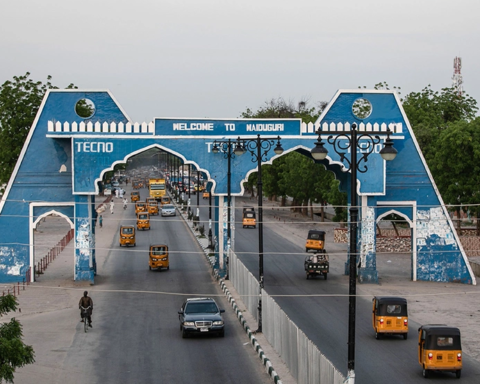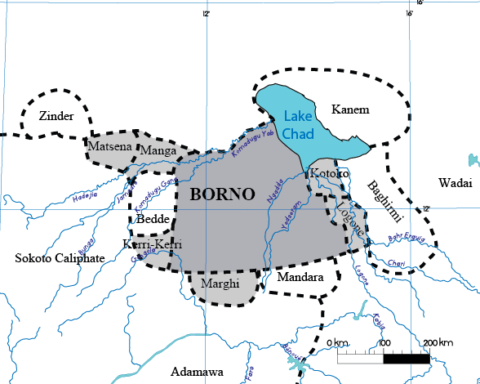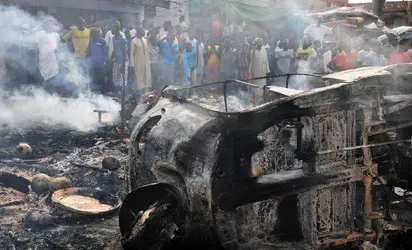Last Saturday, Kashim Shettima, the Borno state governor, went on an inspection tour of Auno, Jakana and Beni Sheikh. These are communities on the Maiduguri-Damaturu highway, where the Borno state government commenced the rehabilitation of communities and the reconstruction of infrastructural facilities that were destroyed, burnt or vandalized by the Boko Haram insurgency. Some of the projects inspected included primary health care centers and staff quarters for doctors, nurses and other health workers; rebuilt and modernized primary schools; the residence of the district head; a central mosque; a general hospital; a local council secretariat that was being reconstructed; magistrate’s court; an office complex for the Federal Road Safety Commission; an upper area court; divisional police headquarters, even boreholes. In all, a total of sixteen project sites were visited in the Kaga local government area of Borno. And that area was chosen for the first phase of a reconstruction process in liberated and reclaimed communities of Borno state. The next phase of the reconstruction process will be taken to Bama, Gwoza ana Askira Uba.
Last month I was in Maiduguri and was privileged to witness a meeting the governor held with officials tasked with the mobilization of the logistics for the reconstruction of these different communities. There were pictures tendered which showed the extent of destruction of infrastructure by the insurgents. They went all out to vandalize and burn offices; residences and even boreholes in the communities that they occupied in the years of the insurgency. The reality is that these were communities that were underdeveloped in the first place and which the insurgency had consciously vandalized and tried almost successfully, to return to the Stone Age. That is why the commencement of reconstruction and rehabilitation of these communities has become a major step in the direction of a post-insurgency era in Borno in particular and the Northeast in general. The Borno government has decided that given the balance of forces today, leading to the massive degradation of the insurgency as well as the commitment of the Buhari Presidency to end the insurgency by the end of the year, the time has come to take the definitive step in the area of reconstruction. To this end, thousands and thousands of blocks are being molded, with working people becoming busy in Borno in providing the vital needs to reconstruct communities and basic infrastructure to resume life in these communities. The central plan is to modernize public infrastructure; and ensure functional service delivery in sectors like healthcare delivery; water supply; education and other essentials of life and helping to bring the people rapidly to modernity. Many of these are farming communities and the government has also procured agricultural machinery and basic implements that will be used in a massive agricultural revolution that is planned to become central to the re-commencement of community life in all the areas that were destroyed by the insurgency.
I think the Borno State government has chosen a most auspicious time to begin the reconstruction of these communities. There is a very positive environment nationally, with a government at the center that is committed to a rapid ending of the insurgency and which is also not hostile to the Borno State government, like the Jonathan administration was. The regional situation is also favourable, with the cobbling together of a serious regional military alliance that will close in of the insurgents from all directions to eventually flush them out. And finally, there is an international ambience that is also very conducive to the return of peace; the Americans are introducing troops in regional countries as well as intelligence gathering capabilities that will assist the regional force just as the international community is pledging funds to assist in the rehabilitation and reconstruction process. The end of the insurgency is very close (never mind the desperate bombings of soft targets which only underline the strategic weakness and degradation of the terror organization) and a window of opportunity has opened for the people of Borno and the Northeast to begin to contemplate life in a post-insurgency era, with its own very unique and exacting demands. The easier part will be to rehabilitate infrastructure while the more long lasting issues will be about the people who were traumatized; those that suffered physical and emotional damage, especially women and the very young and the long term issues of de-radicalization and reintegration of former terrorists back into communities. Borno’s government has taken the tentative first step into the future that hopefully will be one of peace and development, but it is going to be a very long journey indeed.





